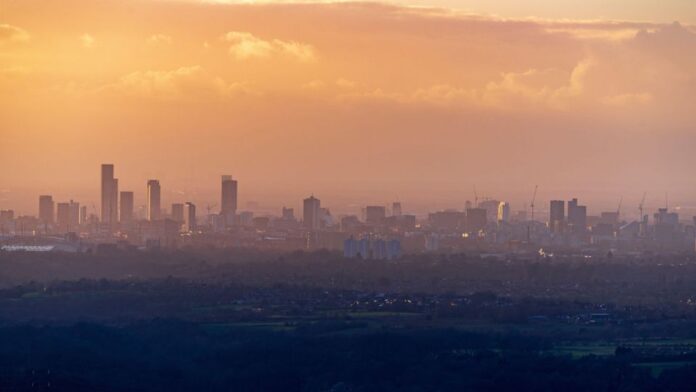The benefits to public health in Manchester of tackling climate change – and the risks if it is not addressed – are set out in a new report to the Council’s health scrutiny committee.
The report by Director of Public Health David Regan makes the point that there is a strong health dimension to the climate change challenge for the city. It points to the growing body of evidence that climate change is already adversely affecting the health of populations in the UK, and worldwide – with those already most vulnerable likely to be the worst affected.
Climate predictions for the UK by 2050 include hotter, drier summers and warmer, wetter winters with around a third more rain and other precipitation. Extreme weather events currently considered outliers could become ‘the new normal.’
For Manchester concerns include the increased risk of flooding (which can have direct impacts through water-borne diseases and the impacts of living in damp conditions as well as potential mental health implications for those affected), the impacts of extreme heat or cold, pollution contributing to heart-related and respiratory illnesses and the impact of rising prices if global food supplies are affected.
The report suggests these impacts are already beginning to be felt but will be exacerbated if climate change and its causes go unchecked, with the most vulnerable – those living in poverty/low income areas, children and older people – most affected.
Conversely, it highlights that some of the actions to help address climate change – for example increased walking and cycling for shorter journeys and measures to support nature and create more green spaces – have a beneficial impact on people’s health.
Manchester declared a climate emergency in 2018 and is targetting becoming a zero carbon city by 2038 at the latest – 12 years ahead of the national target. Manchester City Council has pledged to play its full part in this mission and its current Climate Change Action Plan sets out how it will halve its direct emissions by 2025.
Work is also taking place to help mitigate the impacts of climate change including nature-based solutions (such as the £1m Tree Action MCR tree planting programme and flood resistant ‘sponge park’ in West Gorton), multi-agency flood prevention and management planning and engagement with communities about what they can do.
A new Health and Wellbeing Climate Change advisory group has been set up to help Manchester Climate Change Agency, which is responsible for the citywide action framework, to factor health issues into their planning.
The independent Manchester Food Board is developing a strategy for Manchester to help support sustainable, appropriate and nutritious food for all while minimising the environmental impacts of food production and supply.
David Regan, Director of Public Health for Manchester, said:
“This is an introductory report. It doesn’t claim to have all the answers. It doesn’t even claim to have all the questions.
“But what it does attempt to outline is that the health risks associated with climate change – and the health benefits of tackling it – make it a major public health issue which the Council and the city must continue to grasp.”
Deputy Council Leader Cllr Joanna Midgley, who leads on health, said:
“These issues are not limited to Manchester but as a place with serious health inequalities we must take action to ensure they are not exacerbated in the future by climate change.
“It’s important that we understand this as a real and present public health issue – not something abstract and remote.”







